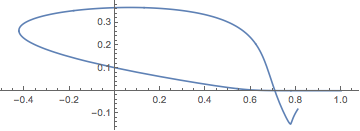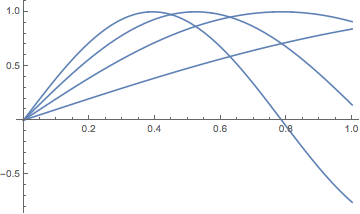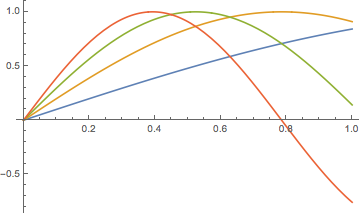I have an InterpolatingFunction which returns a 4 dimensional List as output. Let's call it f. Then I have a mapping such that my variables {x,y,z,w} correspond to each of the four elements of the output of the function. I have some complex expressions in x,y,z,w, which I want to want to plot using ParametricPlot, with {x,y,z,w} replaced with f. I'm trying something a bit like this:
ParametricPlot[
{
x^ y - z w^4,
Sin[x y z w]
},
/. {x -> f[t][[1]], y -> f[t][[2]], z -> f[t][[3]], w -> f[t][[4]]},
{t, 0, range}]
This is not a correct syntax for what I want to do. Can someone advise me how to get this to work?
The expressions x^ y - z w^4 and Sin[x y z w] are less complex than in my real use case.
I would also be interested to know how to convert such a $d$-dimensional InterpolatingFunction into $d$ one-dimensional InterpolatingFunctions, in case someone comes up with a solution that works differently to this.



